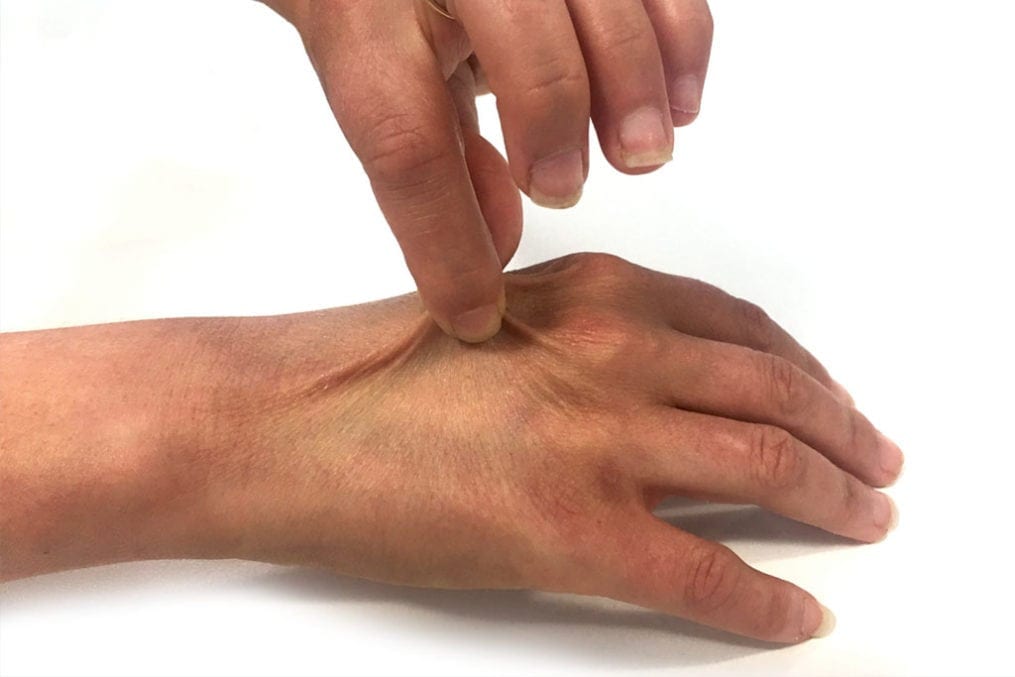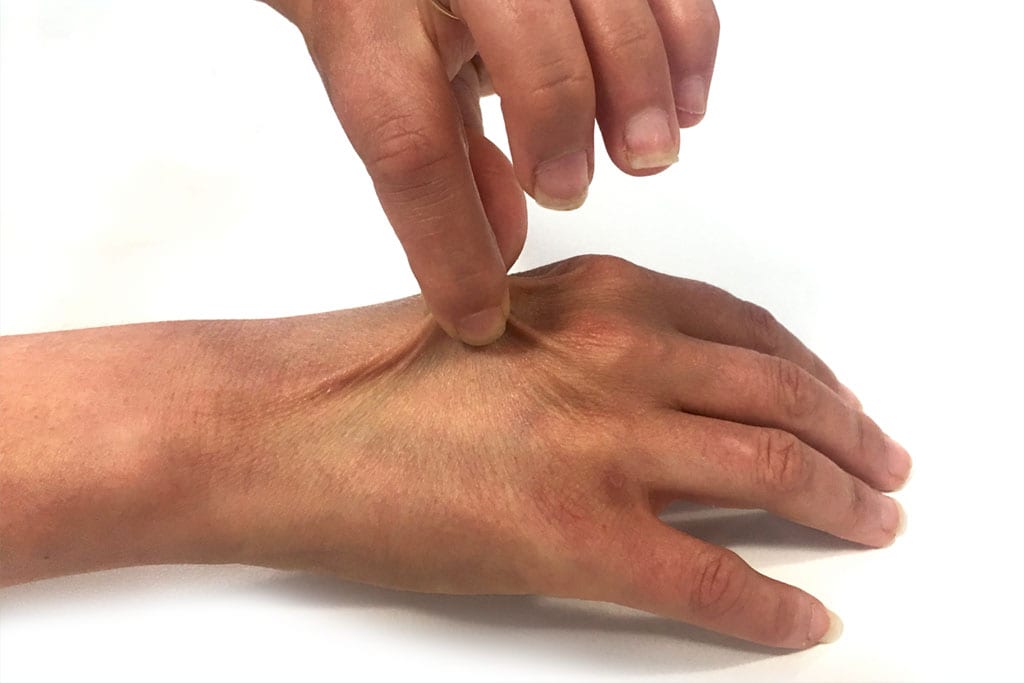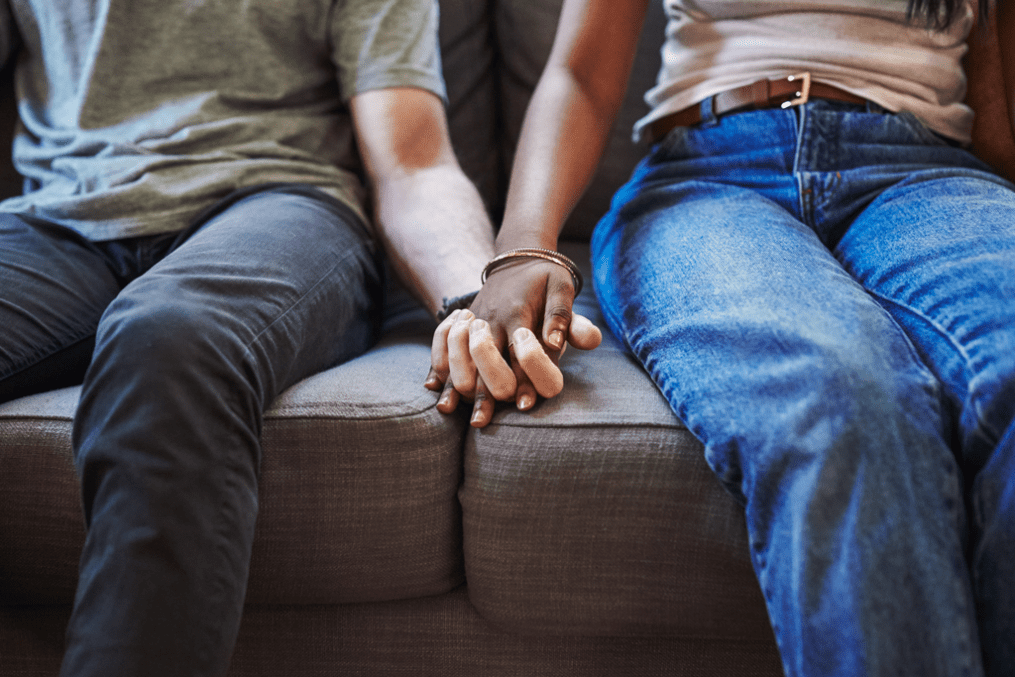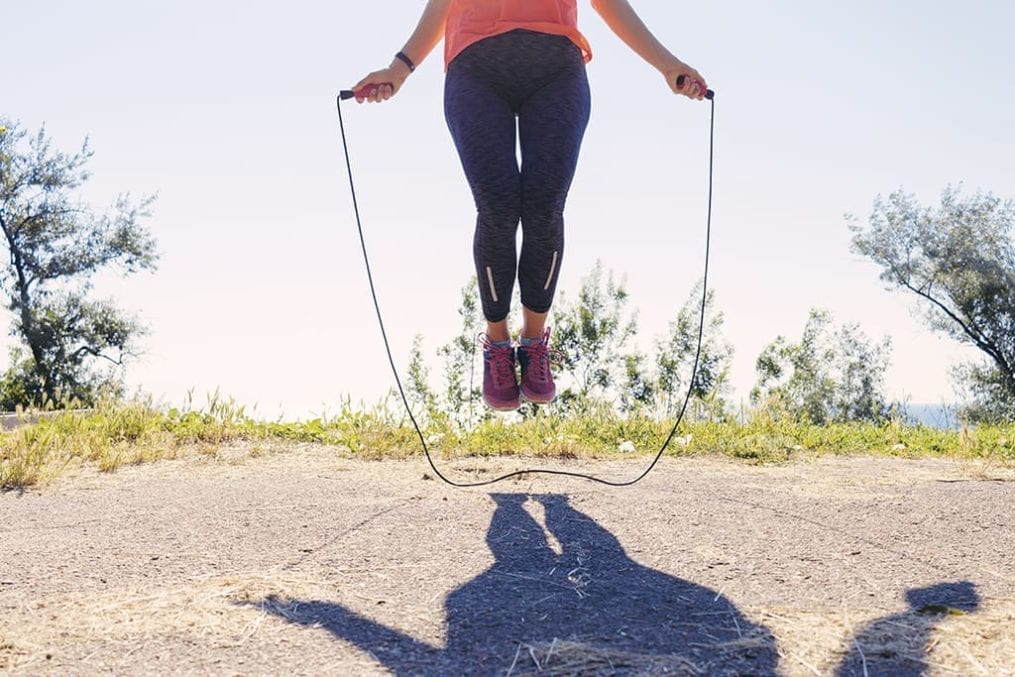These simple tests can tell you if you’re dehydrated
 If you feel thirsty, you need a drink. Yet by the time you actually feel thirsty, your body is already in a mild state of dehydration.
If you feel thirsty, you need a drink. Yet by the time you actually feel thirsty, your body is already in a mild state of dehydration.
Dehydration symptoms of mild to moderate levels include dry mouth, tiredness, headache, muscle tiredness and dizziness.
To check if you are drinking enough water throughout the day, there are two simple tests you can do – both backed up by medical insight.
Read more: 8 ways to stay healthy on holiday
1. The skin-pinch test
One way to see if your body needs more water is to pinch the skin on the back of your hand with your thumb and finger for a few seconds and then release.
The National Library of Medicine says that if you’re hydrated, the skin should snap back into place. If it takes time to return to its position, you could be dehydrated.
A lack of skin elasticity, otherwise known as turgur, is a sign of moderate or severe fluid loss.
Read more: The skin basics you should know about
2. Urine colour test
The second thing to check is the colour of your urine.
Dr Jane Holdsworth, director of the European Hydration Institute, says: “Urine frequency, volume and colour are good indicators of body hydration level.”
“If your urine is pale to light yellow this is normal, but if it’s dark, that’s a sign of dehydration.”
Read more: 5 intimate symptoms you should never ignore
What causes dehydration?
“You are losing water continuously, through your skin and via the air you breathe out, as well as in urine and a small amount in faeces,” says Dr Holdsworth.
“This all adds up to two to three litres in an average day.”
Air conditioning and central heating can also dry out your skin when you’re out of the sun, while hot weather and exercise can lead to perspiration.
What you should do to avoid dehydration
“The adequate total daily water intake from all sources, including food and drinks, is about two litres for females,” says Dr Holdsworth. “But some people need more.”
More hot weather advice: Is there a safe way to get a natural sun tan?
Factors such as weight, physical activity and temperature of environment also affect how much water you need. The Food Standard Agency advises six to eight glasses of fluid a day.
“All beverages – except strong alcohol such as spirits – keep us hydrated,” adds Dr Holdsworth. “You get 70 to 80 per cent of your intake from what you drink. Food also provides moisture – 20 to 30 per cent.”
Foods containing water, such as yoghurt, soups and vegetables are ideal.











